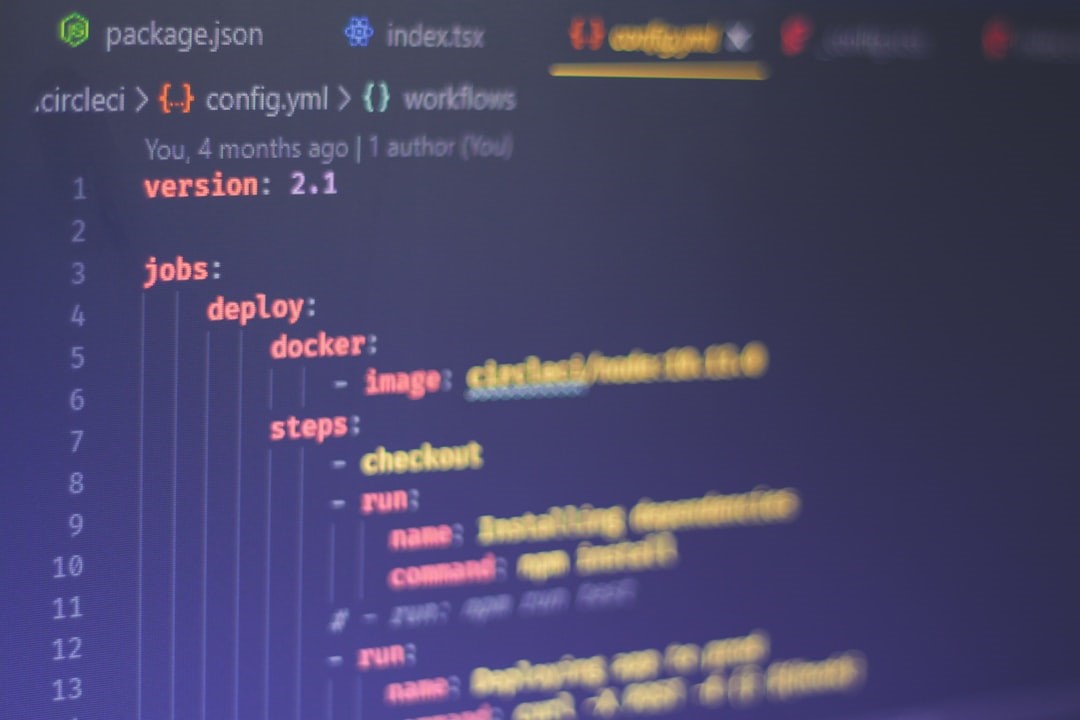When using different `command` settings for local and virtual server environments, you can utilize environment variables in the `docker-compose` file to execute the appropriate command based on the environment. This approach allows you to keep a single `docker-compose.yml` file while executing different commands on local and server environments.
1. Using an environment variable file (`.env`)
`docker-compose` supports environment variable files. This can be used to set different values depending on the environment.
1.1 Creating a `.env` file
To apply different settings for local and server environments, environment-specific variables can be used.
Local environment `.env` file (specifying the command to be run in the local environment):
COMMAND="npm install && npm run dev"Virtual server environment `.env` file (specifying the command to be run in the virtual server environment):
COMMAND="npm run start"After setting up this `.env` file for both local and virtual server environments, you can use it accordingly.
1.2 Modifying the `docker-compose.yml` file
By specifying commands as environment variables in the `docker-compose.yml` file, you can execute commands that match the environment.
services:
node-app:
image: node:latest
working_dir: /app
volumes:
- ./node-app:/app
command: sh -c "${COMMAND}" # Running the command as an environment variable
expose:
- "3000"This way, in the local environment, the `COMMAND=”npm install && npm run dev”` from the `.env` file will apply, running in development mode, while in the virtual server environment, the `COMMAND=”npm run start”` will apply, running in production mode.
2. Separating Docker Compose files
Another method is to use the `docker-compose.override.yml` file to define commands that apply only in the local environment, while the main `docker-compose.yml` file is adjusted for the server environment.
2.1 Main `docker-compose.yml`
Configurations for the server environment are written in the main `docker-compose.yml` file.
services:
node-app:
image: node:latest
working_dir: /app
volumes:
- ./node-app:/app
command: sh -c "npm run start" # Command to be run in the server by default
expose:
- "3000"2.2 Local `docker-compose.override.yml`
Commands used in the local development environment are written in the `docker-compose.override.yml` file.
services:
node-app:
command: sh -c "npm install && npm run dev" # Command to be run locally2.3 Execution method
When running `docker-compose up` locally, the settings in `docker-compose.override.yml` will automatically apply, running the local development command. On the server, where `docker-compose.override.yml` is not present, only the commands in the main `docker-compose.yml` file will run.
3. Passing environment variables directly
Another option is to pass environment variables directly via the command line. This method allows you to apply different commands for each environment without using a `.env` file.
Running locally:
COMMAND="npm install && npm run dev" docker-compose upRunning on the server:
COMMAND="npm run start" docker-compose upThis is the simplest method to pass different commands in each environment.
Conclusion
- Using environment variables: Use a `.env` file to configure different commands for local and server environments.
- Utilizing `docker-compose.override.yml`: Separate additional settings for the local environment using an override file.
- Passing environment variables directly: Manually pass commands based on the environment.
Among these methods, using environment variables and the `.env` file is the most intuitive way to easily differentiate between local and server environments.
